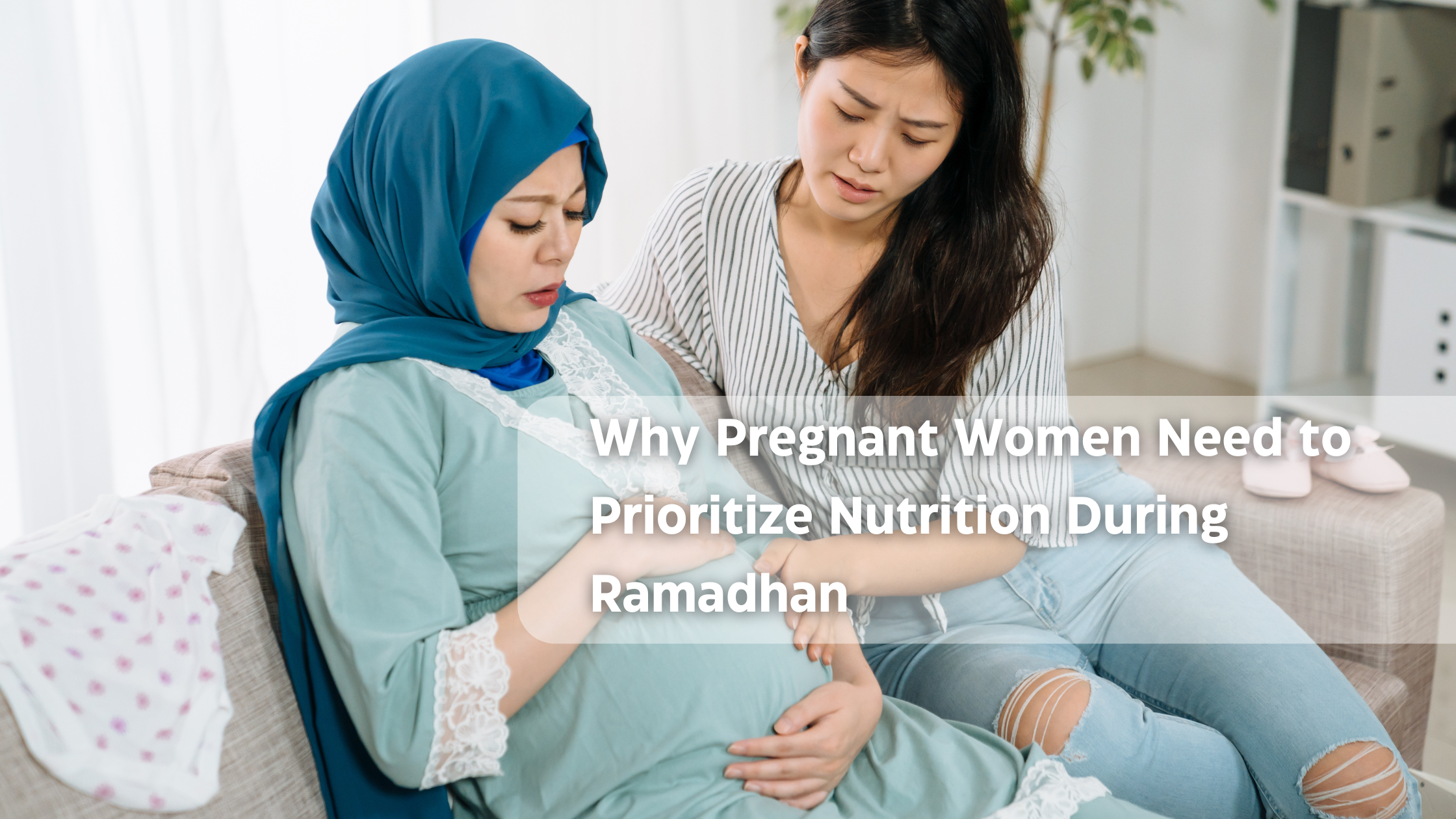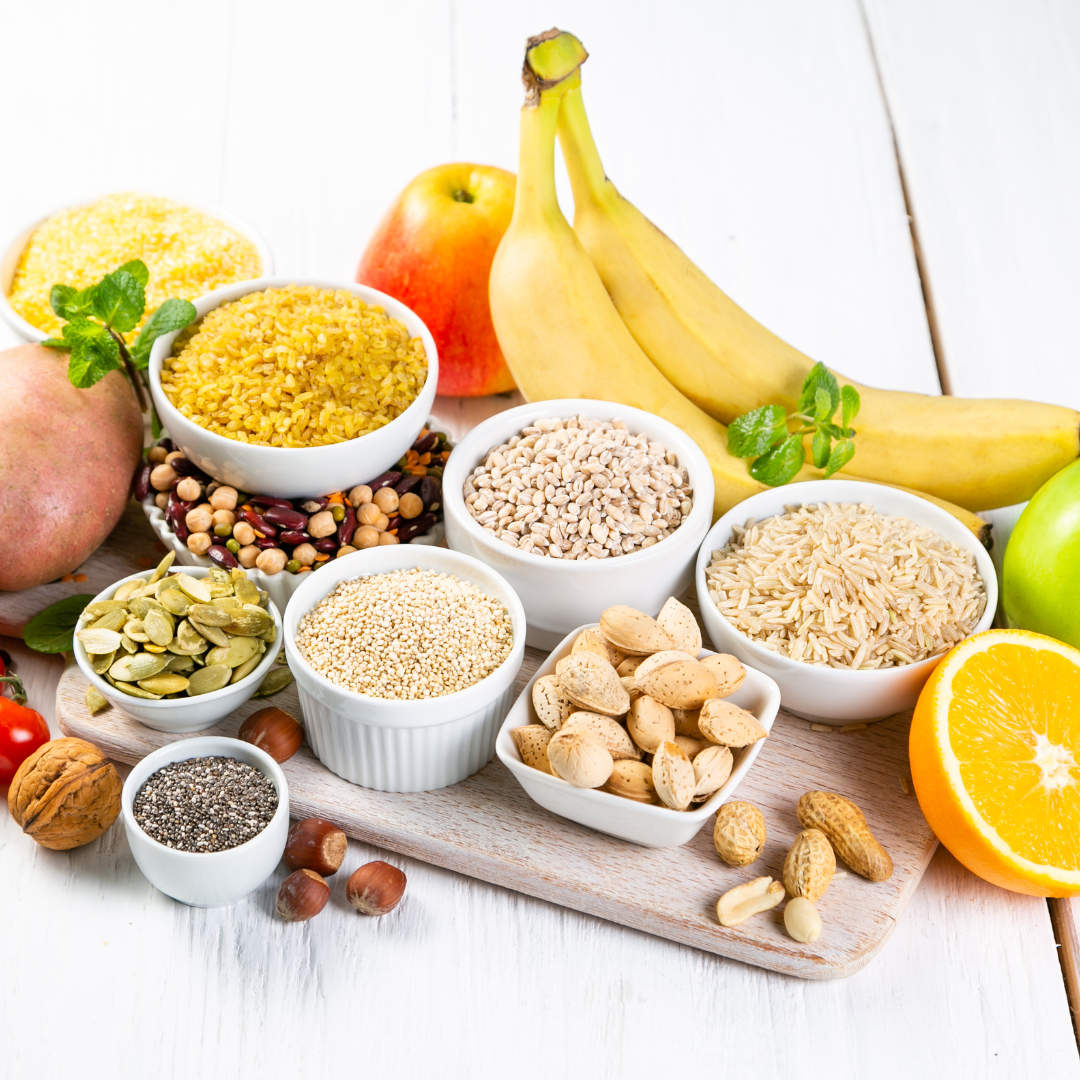Why Pregnant Women Need to Prioritize Nutrition During Ramadhan: Expert Advice
The Importance of Nutrition for Maternal and Child Health

UNDERSTANDING THE NUTRITIONAL NEEDS OF PREGNANT WOMEN
Pregnancy is a critical period that requires extra nutrients to support both mother and baby. Essential nutrients like protein, iron, calcium, and folic acid aid in fetal growth and prevent complications such as anemia. A well-balanced diet rich in fruits, vegetables, whole grains, lean proteins, and healthy fats is crucial. Pregnant women should also avoid raw or undercooked meats, unpasteurized dairy, and high-mercury fish to prevent health risks. Staying hydrated by drinking plenty of water is equally important for overall well-being during pregnancy.
THE ROLE OF NUTRITION IN FETAL DEVELOPMENT
Good nutrition is vital for fetal development, directly influencing the baby's growth and health. Essential nutrients like folic acid prevent neural tube defects, while iron supports the baby’s blood supply. Calcium strengthens bones and teeth, omega-3 fatty acids aid brain and eye development, and protein promotes tissue growth. Vitamin D enhances calcium absorption for strong bones. Proper nutrition reduces birth complications, ensures a healthy birth weight, and lowers the risk of future health issues, including chronic diseases in adulthood.

NAVIGATING RAMADHAN WHILE PREGNANT: TIPS AND STRATEGIES
Fasting during Ramadan requires careful consideration for pregnant women. It's essential to consult a healthcare provider, as some may be advised against fasting due to potential health risks. If you decide to fast, plan carefully: break your fast with nutrient-rich foods, avoid overeating, and opt for small, frequent meals during non-fasting hours to keep blood sugar levels stable. Also, drink plenty of water between sunset and sunrise to stay hydrated. Always listen to your body and break your fast if you feel unwell, as your health and your baby's well-being are paramount. Remember, Islam provides exemptions for pregnant women if fasting might be harmful.
HOW TO MAINTAIN A HEALTHY DIET DURING RAMADHAN
Eating a balanced diet during Ramadan while pregnant requires careful planning. Focus on nutrient-rich foods for suhoor and iftar, including complex carbs (image 1), lean proteins, and healthy fats. For suhoor, opt for energy-sustaining foods like oatmeal, whole grain bread, eggs, and yogurt, along with fruits and vegetables for added vitamins and fiber. Break your fast with dates and water to restore energy quickly. For the main meal, include lean meats, fish, lentils, and beans for protein, whole grains for fiber, and a variety of fruits and vegetables for essential nutrients. Avoid fried and sugary foods with little nutritional value. Continue taking prenatal vitamins as prescribed and stay hydrated with water, milk, and fresh juices throughout the night.


REAL-WORLD SUCCESS STORIES OF PREGNANT WOMEN OBSERVING RAMADHAN
Overcoming Challenges: Inspiring Accounts from Pregnant Women
Many pregnant women successfully observe Ramadan while prioritizing their health. Sarah, a first-time mother, worked with her doctor to create a safe fasting plan, relying on nutrient-rich meals and small, frequent portions to maintain energy. Amina, during her second pregnancy, fasted only when she felt strong and prioritized hydration between iftar and suhoor. Fatima, pregnant with twins, modified her fasting by eating small meals every few hours instead of full fasts, ensuring her babies received proper nutrition. Their experiences show that every pregnancy is unique, and a personalized approach helps balance health and spiritual commitments.
The Positive Impact of Ramadhan on Maternal Health and Well-being
Many pregnant women report positive experiences during Ramadan. The month encourages mindful eating and healthier food choices, benefiting both mother and baby. The spiritual practices and sense of community reduce stress and provide emotional support. Structured eating times can also aid digestion and help manage weight, though it's important to focus on nutrition rather than weight loss. The healthy habits formed during Ramadan often continue throughout pregnancy and beyond, offering long-term benefits.
Final thought
Prioritizing nutrition during Ramadhan is crucial for pregnant women. With proper planning and medical guidance, it's possible to honor religious practices while ensuring a healthy pregnancy. The key is to listen to your body, make informed choices, and focus on nutrient-rich foods. Remember, every pregnancy is unique, and it's essential to consult healthcare providers for personalized advice.

